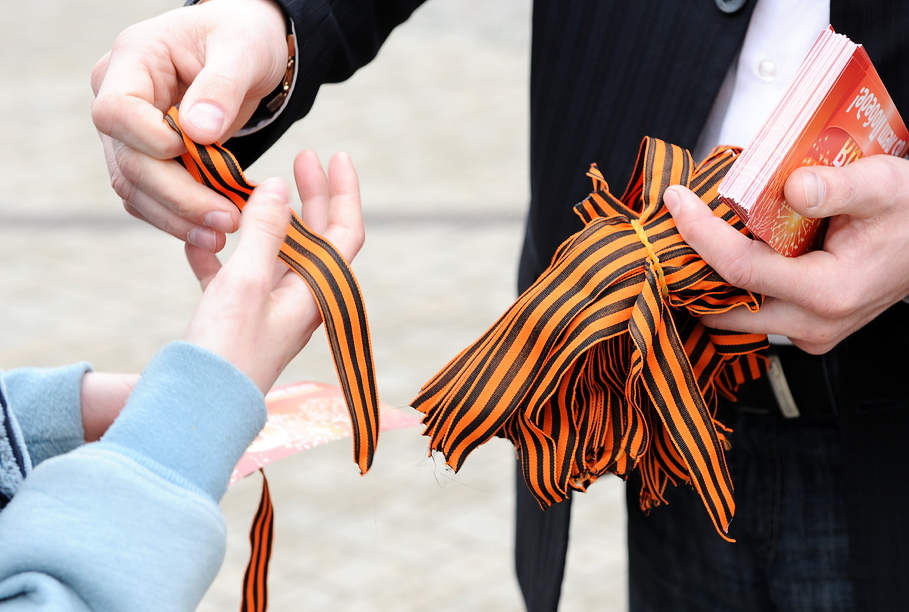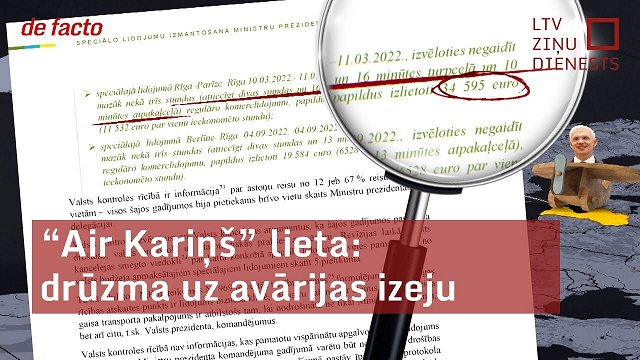The electorate in Latvia’s southeastern province of Latgale, which borders upon Russia and Belarus and holds a significant percentage of the nation’s Russian-speaking population reacted with mixed feelings to the Latvian Russian Union’s stance.
A party newsletter that dropped into mailboxes across the region drew unequivocal parallels between the scenario unfolding in Russian-annexed Crimea and the situation in Latgale, reported Latvian Television (LTV) news program Panorāma, though it did not quote the election pamphlet directly.
Latvia’s Russian Union party, led by MEP Tatjana Ždanoka last week released its pre-election special-edition newsletter addressed specifically to the Russian-speaking electorate in Latgale. Its cover features a photo of party co-chair Miroslav Mitrofanov signing a cooperation agreement with Russian-occupied Crimean leader Sergey Aksionov under the headline "Joining hands with Crimea". The party boasts that it is the only such group in all of the European Union expressing “official and unconditional support” for the current regime in Crimea.
Local pensioner Tatjana Titova, who belongs to the region’s Russian-speaking community, had this to say about the newsletter’s message after contacting LTV on her own initiative Saturday:
“I’m thinking – now how can all this be happening here? Why are they going there (to Crimea)? They shouldn’t even be allowed to go, somebody should be stopping them. I think they are enemies of Latvia. I’m overwhelmed with horror,” the Russian-speaking resident told Panorāma, stressing that she feels the Russian Union may be trying to provoke a similar bloody scenario like the one now unfolding in Ukraine.
“Just look what’s going on in eastern Ukraine, what horrible things! I don’t think either the Ukrainians or the Russians who live there can be happy with this situation, this terrible war that people are fleeing,” she went on.
Latvian Russian Union activists handing out the pre-election newsletters in Daugavpils claimed the intent of the message was precisely the opposite.
“Nothing of the sort could happen to us here in Latvia, in Latgale,” said Russian Union supporter Nikolajs Harlamovs.
"We're the first to be offering a helping hand to Crimea," added Valērijs Oščenkovs. "So that we can regulate economic relations again after the sanctions against Russia end," he explained.
Jurijs Zaicevs, who heads the list of candidates fielded by the Latvian Russian Union in Latgale held firm to the parallels drawn between Latvia’s eastern province and Crimea. If the parties in power continue to deny extensions of language-rights to Russian-speakers and refuse to grant automatic citizenship to the country’s non-citizens, the Russians here will join the Russian Federation and take all the land in Latgale with them.
“The front-page photo – it’s an example, in Russian, that this is how things could turn out in Latvia, too,” said the party’s top-candidate Zaicevs.
Asked if he wasn’t worried about an eventual breakout of conflict in Latgale, Zaicevs replied:
“It’s the process of history. I’m not the only one who should be worried, those holding national power in Riga ought to be afraid, too. The government should be afraid, the Saeima should be afraid. From what? Afraid that one half of Latvia wishes, and could actually be able to. Such a situation could arise, that half of the people travel away to another state, or that there will be war. War,” he repeated.
Security Police spokespersons denied that the newsletter or statements by Latvian Russian Union candidates could yet be construed as incitement to violence. However, in light of experience in other EU member-states, legislative amendments to strengthen liability for hate-speech and fomenting unrest will be on the government’s agenda in the very near future.





























